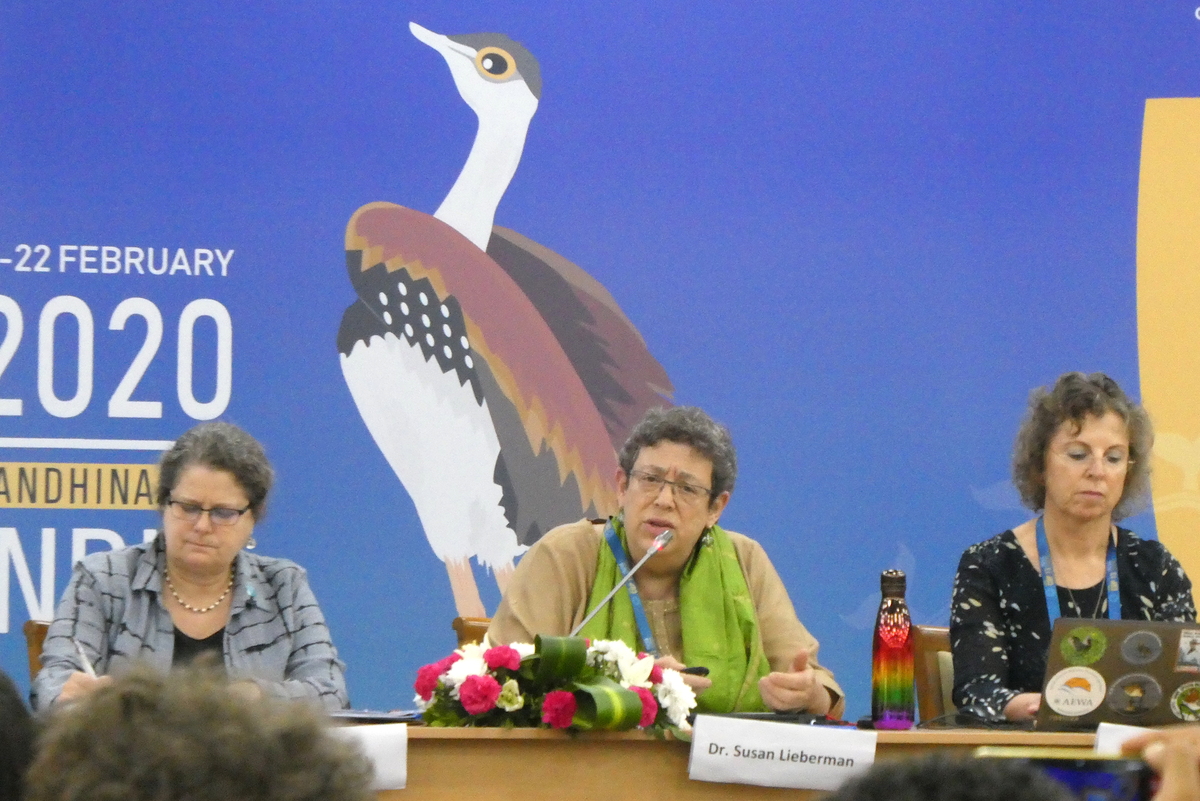International Policy

Our Work
WCS engages with governments, international policy-makers and decision-makers, intergovernmental organizations, and other stakeholders to share our scientific, technical, and policy expertise, and to advocate for the development and implementation of international policies and commitments that positively impact conservation on the ground (and in the water). Our focus is on issues and treaties or agreements that directly impact the wildlife and wild places that WCS works to conserve, with particular emphasis on transboundary issues that require international cooperation, such as:
Read More
Convention on Biological Diversity
Post-2020 Targets for Biodiversity
FAQ: Ecosystem Integrity in the Post-2020 Global Biodiversity Framework
WCS Response to the Zero Draft / Position Statement for OEWG-2
WCS Response to the Zero Draft / Position Statement for OEWG-2 (Plain Text)
WCS Recommendations for the Post-2020 Framework (Updated September 2019)
WCS Recommendation: A Post-2020 Target on Coral Reefs (Updated August 2020)
WCS Recommendation: A Commitment to at Least 30% of the Ocean (Updated August 2020)
Global Targets for Nature Retention
Protect the Last of the Wild
CITES and Wildlife Trade and Trafficking
WCS at CITES CoP20
Drafting Guide: Preventing Illegal Trade in Nationally Protected, Non CITES-Listed Species
WCS Position Statement: 78th Meeting of the CITES Standing Committee (updated as of 26 January)
WCS Positions Statements: CITES CoP19 [Español]
WCS Position Statement: 77th Meeting of the CITES Standing Committee [Español]
WCS Position Statement: 74th Meeting of the CITES Standing Committee [Español] [Français]
WCS Position Statement: 73rd Meeting of the CITES Standing Committee
WCS Position Statement: 70th meeting of the CITES Standing Committee
WCS Position Statement: 69th Meeting of the CITES Standing Committee
WCS Position Statements: CITES CoP18 [Species Proposals]
WCS Position Statements: CITES CoP18 [Working Documents]
WCS Position Statements: CITES CoP17
Wildlife Crime Brochure
Wildlife Trafficking in Latin America [Español]
Migratory Species
WCS at CMS CoP15
WCS Policy Briefing, CMS CoP14 [Español] [Français]
WCS Jaguar Factsheet [Español]
WCS Position Statement: CMS CoP13 [Summary in Français] [Summary in Español]
WCS Position Statement: CMS CoP12
The World Heritage Convention
WCS Position Statement: 43COM
Safeguarding our Natural Heritage: WCS and the World Heritage Convention
News from 42COM: WHC removes Belize Barrier Reef from List of Sites in Danger
WCS Position Statement: 42COM
WCS Position Statement: 41COM
United Nations
WCS Brochure: Wildlife and Wild Places — Essential to Achieving the SDGs
WCS and the Sustainable Development Goals
WCS Briefing for the UN Ocean Conference
European Policy
WCS EU Recommendations: EU-Africa Strategy
WCS Brussels Brochure
WCS Brussels Website
WCS Brochure: Wildlife and the SDGs
Sign Up for Email Updates
Get news from the field and learn about ways you can help Earth’s most threatened species.
